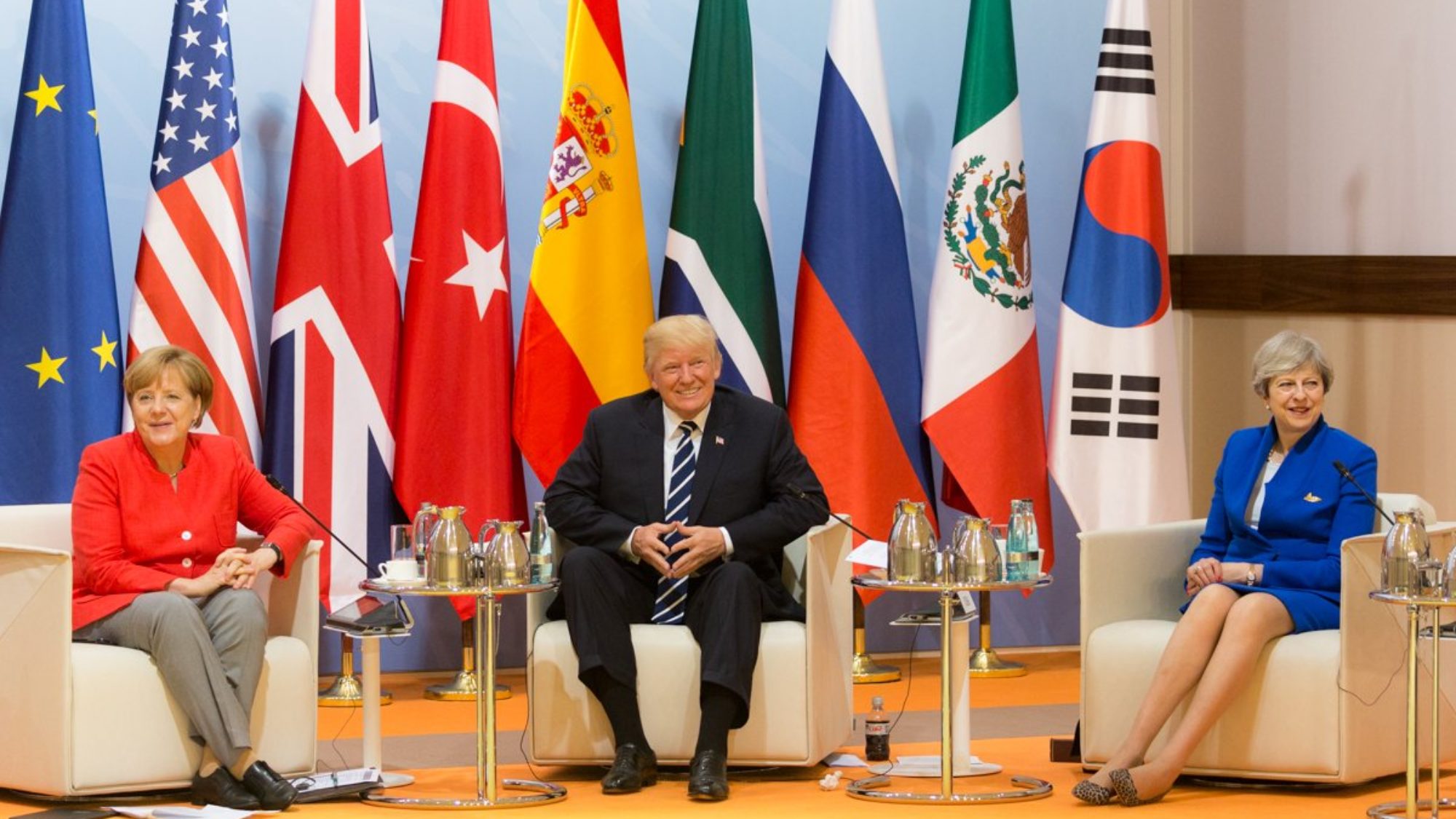
Title: Amb. John Heffern Discusses Brexit’s Impact on Transatlantic Relations
On January 31st, the Mortara Center for International Studies hosted Ambassador John Heffern as a panelist in a discussion of the challenges and consequences of the Brexit movement. Dialogues sat down with Ambassador Heffern after the event to discuss the effects Brexit will have on the relationships between the UK, the US, and the EU, in addition to the shifting ideologies that gave rise to the Brexit movement and the broader implications of these developments.
GJIA: One of your main points today was that the United States needs a strong European Union as a partner. In your opinion, will Britain make the EU less strong?
JH: Yes, it will. At the time of the Brexit referendum in 2016, the US government advocated for a strong UK within a strong EU, and that was our official position. The UK, however, is a democracy, and as we know the vote went a different way. I am afraid that regardless of what the new arrangement is after the deal’s decisions are made, the UK will be weaker, and I expect the EU will be weaker as well.
Do you see any change in US foreign or domestic policy as a result of the Brexit movement?
I’m retired now so I don’t speak for the new administration, which I think has a very different policy on the EU. They do not seem to be very supportive of the EU, and they have supported Brexit, so I can’t speak for that particular policy decision. That said, I think that the fundamentals of our policy should not change, and I hope long term will not change. The US will still want to do whatever we can with the Brits, but also with Brussels, Germany, and with the European partners to make them as strong, sovereign, and prosperous as possible. We will want to work with all the Brits and the EU after the decisions are final to help them get their act together and become as strong and sovereign and prosperous as they can be.
Do you see any potential conflict between the US and Britain or the rest of the EU as a result of these changing relationships?
I really don’t see any conflict. There’s been talk about the question of a European army, but I think that option has been exaggerated. I do think the Europeans will spend more on defense, and that will make them more independent of the US, which could create some problems for us. We’ve enjoyed the relationship that existed until now, but the change in that relationship now is not a result of Brexit, but rather results from the EU increasing defense spending. So, no, overall I don’t think our relationship with the EU will be worse after Brexit than it is now.
How do you think British politics and identity have changed since the creation of the EU? How about Britain’s view of multinational organizations?
I’m not an expert on British policy, so I can’t say for certain, but I do think the trends are taking place in the British body politic as elsewhere in Europe and in the United States. There’s skepticism of globalization and of multilateralism; there’s also the sense that the working man and woman are being forgotten by bureaucrats in the capital and in international organizations. I think the idea of some big government entity far away taking away freedoms and placing constraints on individual citizens is a concern for citizens in Europe, Britain, and the United States. Anti-globalization, anti-multilateralism, and anti-migration sentiment are all present in other parts of Europe and in the US, and I think they are very much a part of the Brexit decision as well.
What do you see as the biggest challenges Britain will face in the coming years, after it officially leaves the EU?
Britain’s economy is, and should be, completely integrated with the rest of Europe. Because of that, it’s inconceivable to me that the United Kingdom will not at least be part of a Customs Union or free trade agreement with the rest of Europe. If we’re assuming they leave the Customs Union, I think they’ve got to make sure they have free trade agreements with the US, the EU, and anybody else who is willing as quickly as possible. Britain is a trading nation, and if it cuts itself off from its main trading partner in Europe, it will have done huge damage to its economy, so I think free trade agreements will be a key priority for any future British government.
Disclaimer: This transcript has been lightly edited for clarity and length.
. . .
Ambassador John A. Heffern is the Former Acting Assistant Secretary of State for European and Eurasian Affairs and Former U.S. Ambassador to Armenia. He was a Pearson Fellow on the Asia Subcommittee for the House International Relations Committee, and also served as Deputy Chief of Mission (DCM) at USNATO in Brussels, Belgium; DCM in Jakarta, Indonesia; and Executive Assistant to the Under Secretary for Political Affairs. Additionally, Ambassador Heffern has served in Tokyo, Japan; Kuala Lumpur, Malaysia; Abidjan, Ivory Coast; and Guangzhou, China during his 36-year career in the Foreign Service. Prior to entering the Foreign Service, Heffern served as the Senator’s Office Director and Research Assistant of Senator John C. Danforth (R-MO). Heffern joined Georgetown’s Institute for the Study of Diplomacy as a Distinguished Joint Fellow in September 2017 before retiring from the State Department in 2018. Ambassador Heffern received a B.A. in International Relations from Michigan State University.